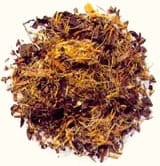
Examining the prakriti of the patient
The term Ayurveda comes from two Indian words: ayur, or life and veda, or knowledge. Ayurvedic medicine is thus described as “knowledge of how to live,” emphasizing that good health is the responsibility of the individual. In ayurvedic medicine, illness is seen in terms of imbalance, with herbs and dietary controls used to restore equilibrium.
 Ayurvedic medicine utilizes a holistic, multi-modality approach to promote balance in mind, body, behavior, and environment. The goal of this approach is to enliven the body’s inner intelligence, understood in Vedic medicine to be the basis of all physiological self-repair, healing mechanisms.
Ayurvedic medicine utilizes a holistic, multi-modality approach to promote balance in mind, body, behavior, and environment. The goal of this approach is to enliven the body’s inner intelligence, understood in Vedic medicine to be the basis of all physiological self-repair, healing mechanisms.
Vedic medicine emphasizes host factors- particularly mental and physical imbalances resulting in disruption of homeostatic or immune mechanisms- as the primary factor in the etiology of disease.
In examining a patient, the physician takes into account the particular pathology and also the specific body constitution or prakriti of the patient. According to the Vedic framework, three fundamental physiological principles, called doshas, regulate the different function of mind and body. The three doshas are called Vata, Pitta, and Kapha. The exact proportions of these three vary in each individual. These three doshas are further subdivided into numerous subdoshas with different locations and functions throughout the body. Imbalance in the doshas disrupts normal function and is responsible for various disorders.
Treatment that is focused on restoring balance to the doshas includes, individualized dietary recommendations, herbal food supplements, Vedic exercise, physiological purification procedures and health-promoting behavioral regimens.
